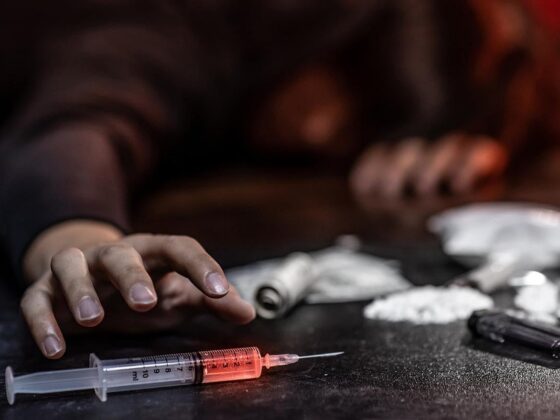Take Stock
Jimmy Carter’s passing on December 29, 2024, at the remarkable age of 100 prompted a wave of reflection on his extraordinary life. His presidency remains a topic of lively debate — critics point to economic struggles and international crises, while supporters celebrate achievements like the Camp David Accords. Yet, it’s his post-presidential legacy that shines brightest. From eradicating diseases to building homes and championing peace, Carter redefined what a former president could accomplish.
As people looked back on his life, many stories highlighted Carter’s humble roots in rural Plains, Georgia. Carter grew up on a peanut farm without electricity or indoor plumbing until he was 14. His closest childhood friends were Black children, an experience that deeply influenced his lifelong commitment to equality and justice.
Curious to learn more, I turned straight to the source — Carter’s own words in An Hour Before Daylight. The book vividly brings his boyhood in Plains to life, mixing lighthearted and poignant tales. One story stood out: his reflections on Wise Sanitarium, the community hospital where Carter was born — a story that feels strikingly relevant, especially in light of this week’s release of a U.S. Senate report on the troubling impacts of private equity ownership on today’s healthcare system.
A Hospital Built by a Community
On October 1, 1924, Carter became the first U.S. president born in a hospital — the Wise Sanitarium in Plains. In his memoir, Carter describes the hospital as a cornerstone of community pride, established by the “Three Wise Men”: Burr Thaddeus, Sam, and Bowman Wise, all Tulane University medical school graduates.
The brothers rallied local support to fund their vision of a state-of-the-art facility. Residents of means contributed funds in exchange for hospital stock. Any profits, Carter writes, were reinvested into equipment, building improvements, and supplies. The result was a $75,000 facility boasting 60 beds, an operating room, and an X-ray room capable of radium treatment— an impressive feat for the time. These features made it a beacon of care in the South, often called the “Mayo Clinic of the South.”
Carter’s father, James Earl Carter Sr., was on the hospital’s board of directors and a proud stockholder. Wise Sanitarium exemplified a time when healthcare was fueled by community investment and shared responsibility.
However, after struggling financially, the Wise Sanitarium sat vacant from 1936 to 1956. It was eventually sold for less than $3,000 to E.W. Barber of Sharon, Georgia, who pledged to invest $35,000 to modernize the facility. The holders of the 748 ½ shares in the hospital, including Jimmy Carter, were paid less than $4 a share—a loss of over $68 a share.
Despite its challenges, the facility found new life. It was renamed the Lillian Carter Rehabilitation Center in honor of Carter’s mother, a dedicated nurse, and continues to serve patients to this day.
The Shift: Profits Over Patients
Wise Sanitarium’s story reflects a bygone era when healthcare was driven by local investment and a sense of shared responsibility. Today, hospitals are often managed by private equity firms, a dramatic shift examined in the bipartisan Senate Budget Committee report, Profits Over Patients: The Harmful Effects of Private Equity on the U.S. Healthcare System.
The Committee investigated private equity firms Apollo Global Management, owner of Lifepoint Healthcare — the nation’s largest operator of rural hospitals — and Leonard Green & Partners, which owned hospitals under the Prospect Medical Holdings umbrella from 2010 to 2021.
The report highlights that, in both cases, investors thrived while the hospitals struggled due to inadequate oversight, understaffing, and safety violations, all driven by the pressure to prioritize profits. Patient volumes declined, likely as a result of long emergency room wait times, staff shortages, a lack of specialist physicians, poor patient experiences, and a tarnished reputation within the community. Despite promises to improve patient satisfaction scores and surpass the national average, these goals were not met. In fact, satisfaction scores remained below average and, in some instances, among the lowest for patient experience.
These findings align with other studies examining the effects of private equity on hospitals. While supporters argue that private equity can help struggling hospitals and foster innovation, the Senate report, like these studies, underscores the dangers of profit-driven models that ultimately undermine patient care.
A Lesson from Plains
Jimmy Carter’s reflections on Wise Sanitarium remind us of a time when healthcare was a community endeavor—built on trust, shared investment, and a commitment to patient care. In today’s landscape of corporate ownership and profit-driven decisions, it’s a powerful reminder of what we may have lost.
Carter’s life stands as a beacon of service and collective action. His unwavering dedication to compassion and humanity offers a guiding light for reimagining healthcare—where patients, not profits, take center stage. The story of Plains teaches us a timeless truth: when people unite, they can achieve extraordinary things.
Happy reading,
- News Watch: CVS rolls out new pricing model, medical debt excluded from credit reports, and 1st state to cover GLP-1s in ACA plans.
- Profits Rule: Senate report on impact of private equity in healthcare, private equity & patient care and Massachusetts’ new law to rein in private equity firms.
- Problems Abound: insurers question patient’s need for prosthetics, losing coverage for weight-loss drugs and annual awards for worst examples of healthcare profiteering.
- Good Read: including my personal favorite, Jimmy Carter Took on the Awful Guinea Worm When No One Else Would — And Triumphed!
News Watch
Fierce Healthcare
CVS officially rolls out CostVantage model for commercial prescriptions
KFF Health News
Biden Administration Bars Medical Debt From Credit Scoresa
Becker’s Payer Issues
The first state to cover Ozempic under the ACA
Profits Rule
Healthcare Dive
Private equity firms got rich while shirking obligations to hospitals, Senate report finds
Harvard School of Public Health
Private equity’s appetite for hospitals may put patients at risk
Healthcare Dive
After Steward crisis, new Massachusetts law aims to strengthen oversight of hospitals
Problems Abound
KFF Health News
Health Insurers Limit Coverage of Prosthetic Limbs, Questioning Their Medical Necessity
New York Times
Weight Loss Drugs Changed Their Lives. Then They Lost Coverage.
Lown Institute
2024 Shkreli Awards — top ten list of the worst examples of profiteering and dysfunction in healthcare
Good Reads
NPR
How a fox skull shape conquers the snow
Smithsonian Magazine
A Brief History of the Goodyear Blimp, Which Celebrates Its 100th Anniversary This Year
KFF Health News
Jimmy Carter Took on the Awful Guinea Worm When No One Else Would — And Triumphed
Enjoy the weekend!
Best,
Suzanne
Suzanne Daniels, Ph.D.
AEPC President
P.O. Box 1416
Birmingham, MI 48012
Office: (248) 792-2187
Email: [email protected]

News you can trust



